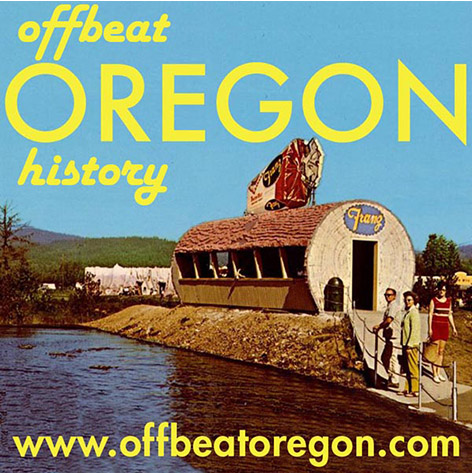FORT ROCK, LAKE COUNTY; 1910s — 1960s:
Rancher Reub Long was
a legendary ‘BS Artist’
By Finn J.D. John
|

Reub was one of those rare characters blessed with a gift both for earning money and for hanging onto it. Later in his life he used to say, “Nothing gets a man into such hot water so quickly as good credit. Be careful not to acquire too much of it. It has ruined more people than bad credit ever did.” Anyone who’s ever looked up the monthly interest payment on a large credit-card balance (or, getting closer to home here, taken out a Small Business Administration loan to try to prop up a failing business that he has foolishly bought thinking he could turn it around) probably knows what Reub is talking about! In any case, when the homesteaders ran out of money, as they inevitably did unless they were lucky enough to have an on-site source of water, Reub was one of the few folks around with enough money to buy them out. So after a while, one half-section at a time, he accumulated a several-thousand-acre spread, peppered with abandoned homesteaders’ shacks, some of which he’d probably helped build. “The homesteaders were beaten one by one,” Reub recalls. “Those who arrived with the least stayed the longest. The ones who came with money usually came without experience and hired the others. The result was that the well-to-do who came with money and no experience left with experience and no money.” “The homesteaders had no chance,” he added, a few pages later in his book. “A homestead is supposed to be farmland — but the desert isn’t farmland. Rainfall can drop to as low as five inches in a year, which won’t raise any known crops. So they were poor, deluded persons. But they were not beaten, bitter, or downtrodden. Against all reason they were happy. I have met dozens of them since — in all walks of life, and to a man, they remember their homestead days as the happiest time of their life.”
And secondly, Reub knew how to hustle. He was, in the idiom of the day, “wide awake” at all times. He was friendly and outgoing, a super hard worker, and a gifted stock handler. “My business, most of my life, was with horses, and there are all kinds of horse businesses,” he recalls. “I tried all of them except racing. In addition, I tried sheepherding, trapping, dairying, dryland farming, surveying, dude wrangling, moving-picture making, working for the government, and running a pool hall. Once, in a pinch, I even trained and promoted a prizefighter.” In the late 1950s and 1960s, Reub regularly led “dude ranch” experiences, in which city folks would pay him to squire them around like real cowboys. This line of activity brought him to the attention of some of the Hollywood movie studios, who started hiring him to scout locations and furnish horses, wagons, and other Wild West props for movies. Reub helped with Canyon Passage (1946), The Indian Fighter (1955), and The Way West (1967); along the way, he got to know Andy Devine, Susan Hayward, Kirk Douglas, Dana Andrews, Lloyd Bridges, and a number of other slightly-less-famous actors. He also was responsible, as much as any other single person, for the transformation of Oregon’s Outback from cattle-and-sheep rangeland into alfalfa country. As an adviser on a Bureau of Land Mangement board, he lobbied the Bonneville Power Administration and Federal Department of Rural Electrification to bring electrical-grid connections to northern Lake County. This happened in 1955, and the first irrigated alfalfa field followed not long after (as, of course, did M. Penn Phillips’s flashy, hucksterish development of Christmas Valley a few years later). And, of course, it was Reub who in 1938 invited legendary University of Oregon archaeologist Luther Cressman to explore a cave on his property for evidence of ancient people, and, after Cressman found 14,000-year-old sandals there, donated the property along with Fort Rock itself (the extinct volcano, not the town) to the state. Such an eclectic life naturally provided Reub with plenty of anecdotes to pass on and “augment” as well as great opportunities to hone his storytelling style with various different kinds of audiences. And in his later years, after he’d more or less settled down at his home on the ranch and started collaborating with Oregon State University Extension Agent Russ Jackman on The Oregon Desert, he settled into what for him probably counted as semi-retirement, with a new profession as the Sage of Fort Rock. There are dozens of Reub Long stories circulating out there in the world. In next week's column, we’ll take a look at some of the most memorable of these.
|


